MSc Real Estate
INSEEC’s Masters of Science in Real Estate train sought-after experts on 7 national campuses, from Paris to Lyon and Bordeaux, guaranteeing optimal integration into the real estate sector.
- Master the challenges of professional real estate
- Alternate theory and professional practice
- Obtain an RNCP level 7 qualification
- Join developers, agencies and property companies quickly

employees in the property sector
increase in the number of transactions in 2025
average annual remuneration for a property manager
agencies and property managers in France
What is a Master of Science in Real Estate at INSEEC?
INSEEC’s Master of Science in Real Estate is a comprehensive course that prepares you for careers in the management, financing and development of real estate projects. It trains you to understand market mechanisms, assess property values and manage complex operations, from design to marketing.
Thanks to its approach combining law, finance and asset strategy, this Master of Science enables you to acquire a global vision of the sector. You will learn how to negotiate with market players and optimise the profitability of investments, so that you can progress to positions of responsibility in a rapidly expanding sector.
This specialisation is available on the INSEEC campuses in Bordeaux, Chambéry, Lyon, Marseille, Paris, Rennes and Toulouse. Whether you study real estate in Paris, the financial centre and heart of the premium office market, in Lyon with its dynamic urban development, or on one of our 5 other campuses, you will benefit from a dense professional network and concrete opportunities.
The programme covers all the major areas of real estate expertise, enabling you to master every stage of the value chain, from development to asset management. Find the main topics below.
Property Promotion and Development
Creating and developing projects
Property development is at the heart of value creation in the real estate industry. This specialisation teaches you how to put together complex projects, from land acquisition to completion. You will learn to manage residential, commercial and mixed-use projects in a demanding regulatory environment.
You will be proficient in analysing technical and financial feasibility, negotiating with local authorities and developers, managing marketing and project risk management. You will also learn to integrate the challenges of sustainable development, environmental certification and urban innovation.
These skills open the door to positions as development project manager, property programme manager, development director or land manager in property development groups, real estate companies and developers.
Asset Management and Wealth Management
Enhancing and optimising assets
Real estate asset management is a strategic business in terms of adding value to and optimising portfolios. This course trains you to manage property assets on behalf of institutional investors, property companies or family offices. You will develop a financial and asset-based vision of property investments.
You will learn how to develop valuation strategies, optimise rental yields, manage works and arbitration, manage tenant relations and analyse asset performance. You will be familiar with reporting tools, profitability indicators (IRR, NPV) and repositioning strategies.
This expertise will prepare you for positions as asset manager, property manager, investment manager or property manager in management companies, listed real estate companies and insurance companies.
Property transactions and valuations
Accurate advice and assessment
Real estate transactions and valuations require in-depth knowledge of the market and valuation techniques. This specialisation trains you to help people make decisions about buying, selling or investing in property. You will develop skills in market analysis, negotiation and strategic advice.
You will be familiar with property valuation methods (comparison, capitalisation, DCF), analysis of commercial and office leases, prospecting and complex negotiation. You will also learn to carry out technical audits and market studies and to advise on acquisition or disposal strategies.
These skills open the door to jobs as property consultants, property experts, commercial property negotiators or transaction managers in consultancies, specialist agencies and real estate companies.
Skills developed
- Defining a real estate strategy
- Valuing a property
- Setting up a project
- Managing assets
- Managing delivery
- Expert negotiation
- Managing teams
Our training courses
INSEEC Masters of Science in Real Estate
INSEEC offers Masters of Science in Real Estate on a sandwich course or as an initial course, to develop your sector expertise and your employability. Choose the course that suits you best.
Campus
-
- 1st year postgraduate
- 3rd year undergraduate
MSc Expert in Real Estate Management
The professions
Career opportunities for a Master of Science in Real Estate
INSEEC’s Master of Science in Real Estate provides access to strategic careers in property development, asset management and transactions, with rapid integration and attractive career prospects.
Study in the heart of France’s major cities
Our campuses



Campus de Lyon
Take advantage of a historic campus in the heart of Lyon, one of France’s most dynamic cultural and student cities.



Campus de Paris
Discover three modern, easily accessible campuses in iconic Paris locations.
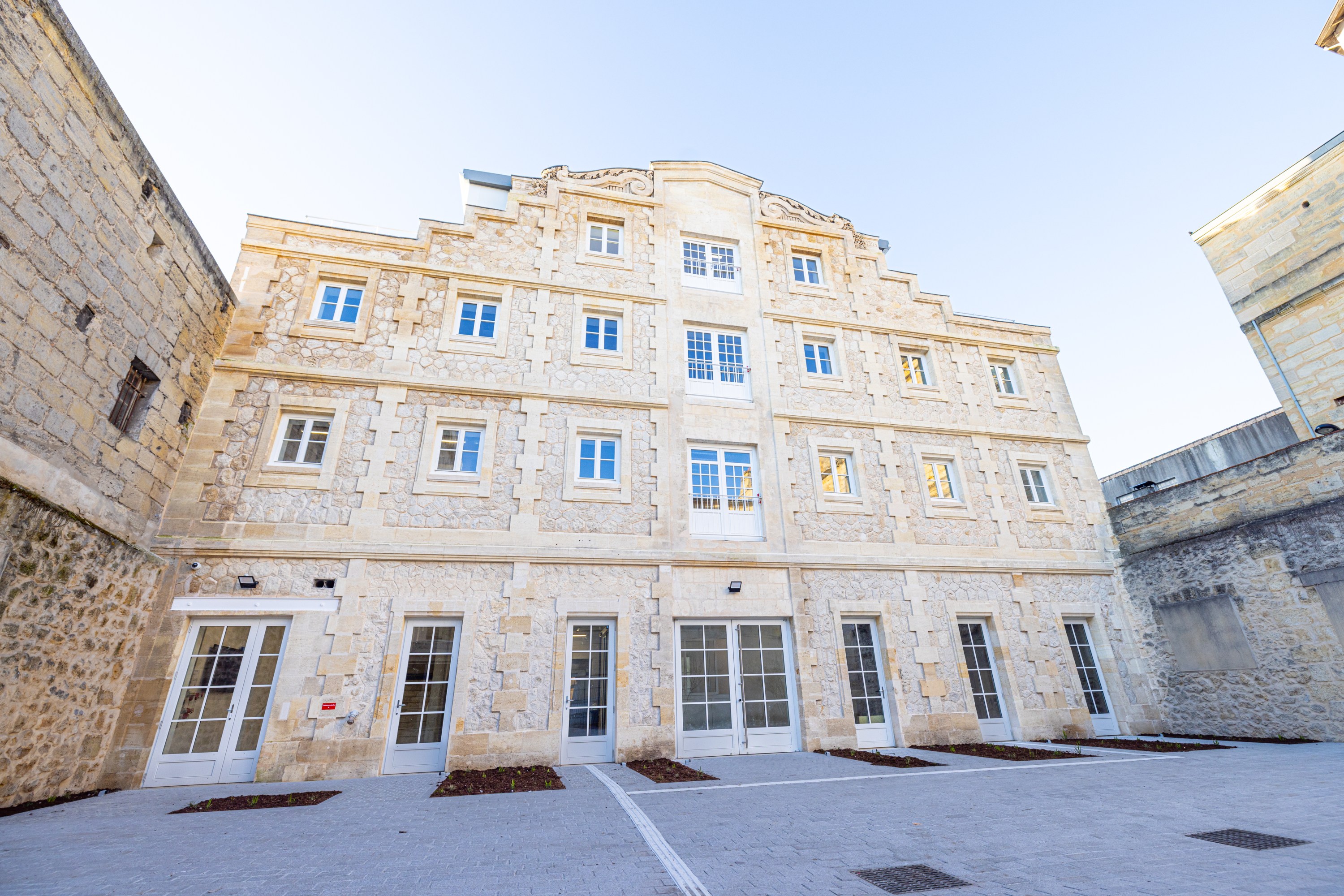


Campus de Bordeaux
Join a modern, friendly campus on the banks of the Garonne, in the heart of a lively, friendly city.



Campus de Rennes
Join a recently refurbished campus in a welcoming, student-friendly town where the energy of Brittany can be felt every day.


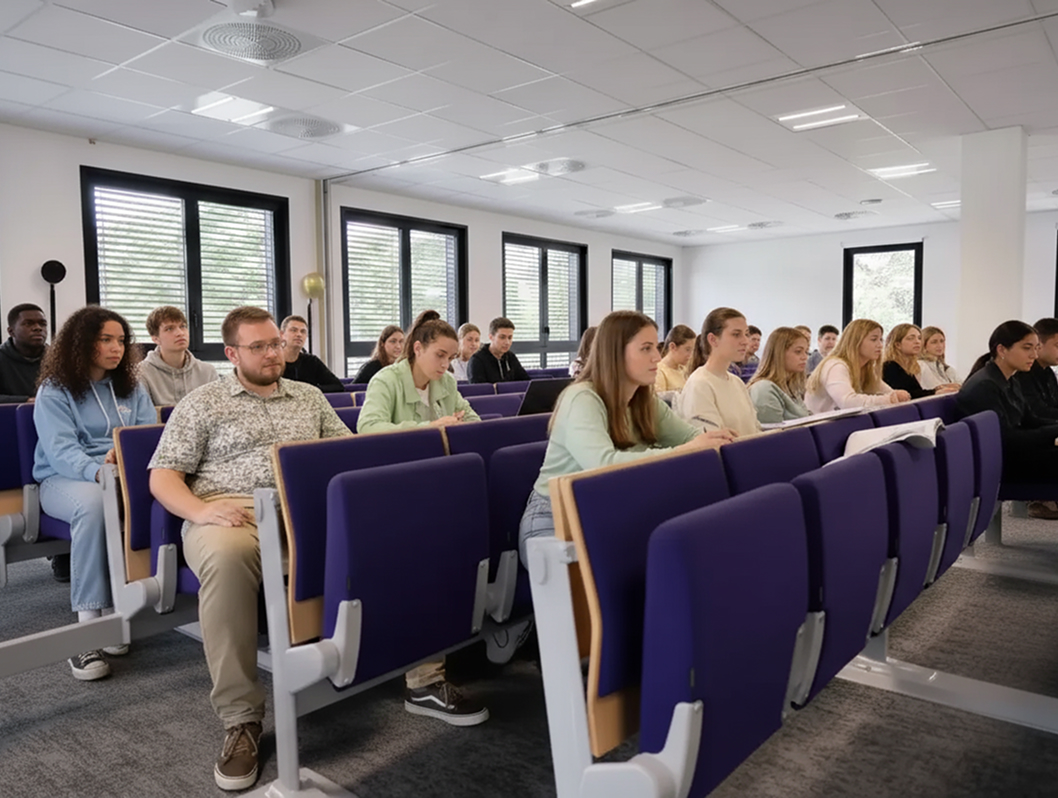
Campus de Toulouse
Study on a bright, modern campus close to the centre and Toulouse’s dynamic economy.


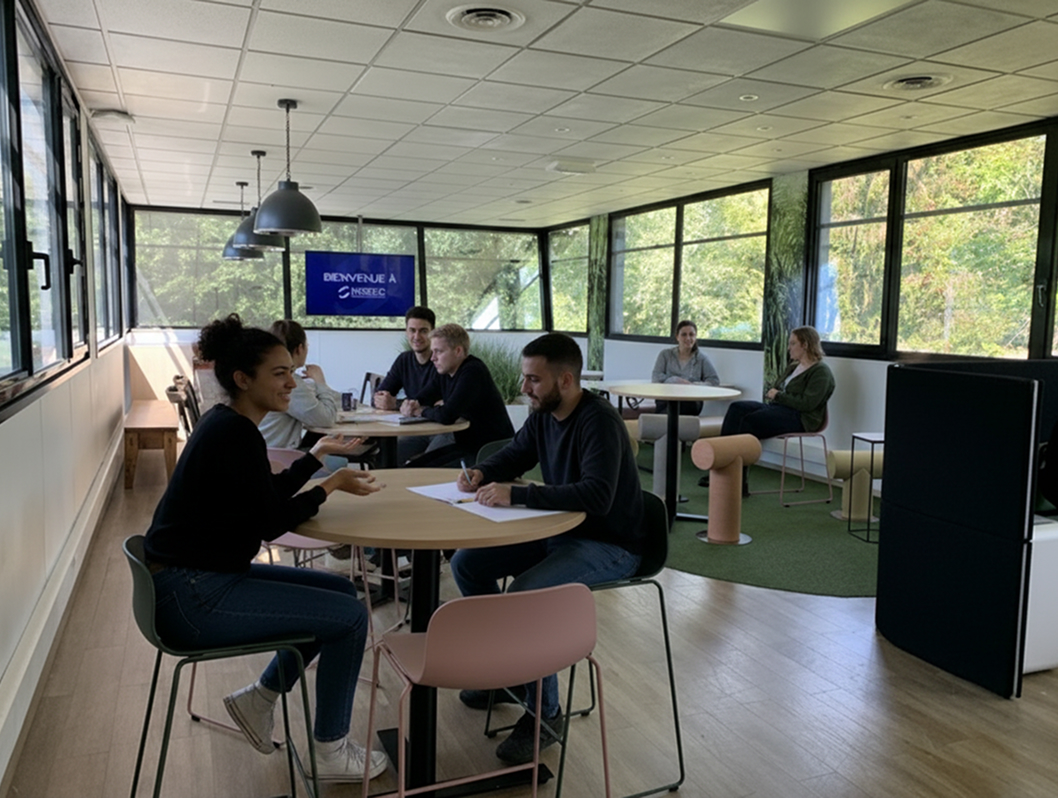
Campus de Chambéry
Study between lake and mountains on a unique American-style campus, conducive to a fulfilling student experience.

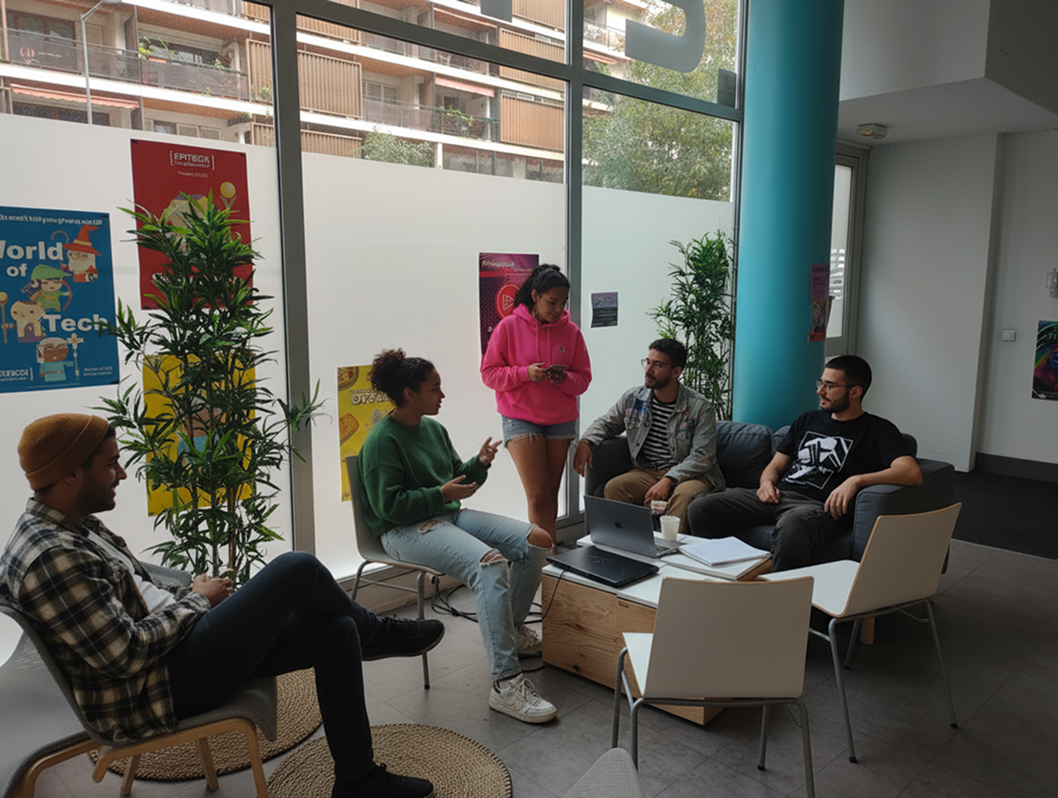
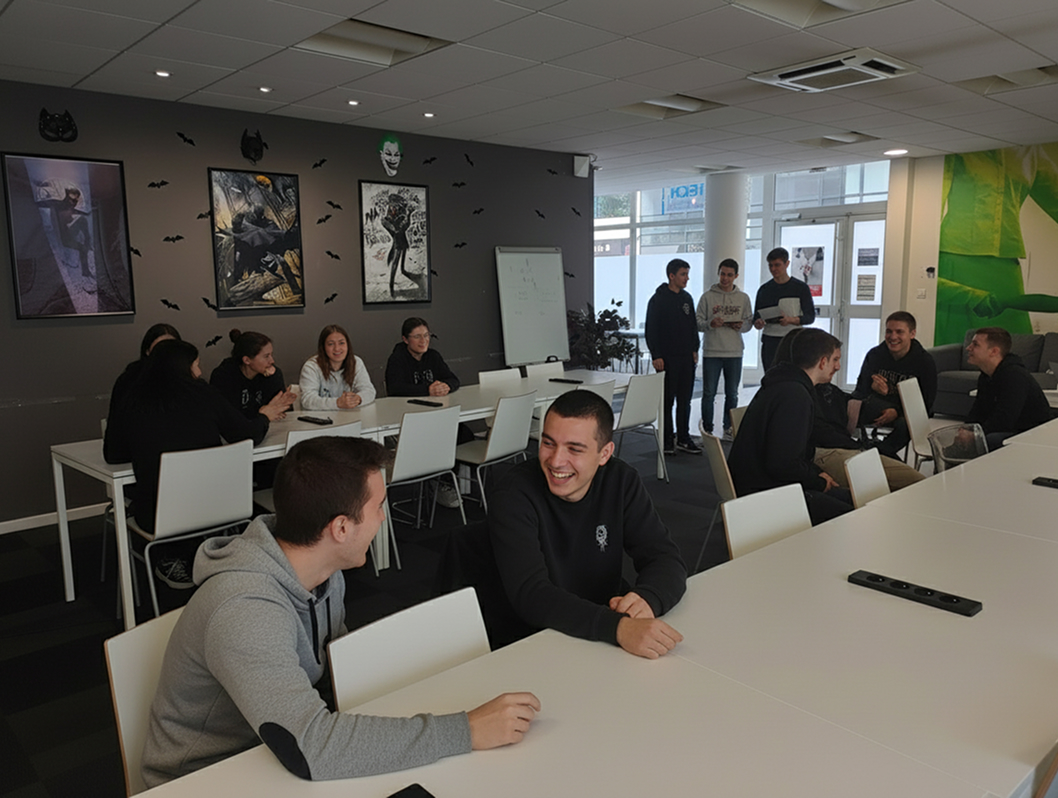
Campus de Marseille
Discover a brand new campus in the heart of Marseille, an energetic Mediterranean city full of contrasts.
Visit us at
Our events
Event type
Campus
-
MSc
07/01
Open House Days in Online
-
MSc
10/01
Open House Days in Chambéry
-
MSc
17/01
Open House Days in Rennes
FAQ
Questions about INSEEC’s Masters of Science in Real Estate?
Find the answers to the most frequently asked questions about INSEEC’s Master of Science in Real Estate. Still have a question? Contact us, we’re here to help.
Questions about our real estate programmes
How can you finance your Master of Science in Real Estate?
There are several ways to finance your Master of Science in Real Estate. Work-linked training remains the most advantageous solution: your tuition fees are paid by the OPCO and by the company. What’s more, you’ll earn a salary while gaining practical work experience in real estate.
The programme can also be taken as an initial course with long-term placements. The admissions department can help you with your financing arrangements.
The programme enables you to acquire practical skills in promotion, management and transactions while being paid during your year of study.
What is the profile of successful Master of Science in Real Estate students?
The students who excel in this Master of Science in Real Estate combine analytical rigour, interpersonal skills and an interest in the construction and urban development sector. They come from a wide range of backgrounds: business schools, engineering schools, courses in real estate law, architecture or management after 3 or 4 years’ higher education.
People with previous experience in property development, property management or real estate services are particularly successful. The important thing is to have the ability to manage complex projects, negotiate and understand the legal and financial issues involved.
A candidate who is motivated by the sector’s regulatory framework and urban transformations will have every chance of obtaining his or her diploma.
What is the salary after a Master of Science in Real Estate?
Graduates of the Master of Science in Real Estate can expect attractive salaries at the start of their career, generally between €34,000 and €37,000 gross per annum depending on the position and the company.
After 3 to 5 years’ experience as an asset manager, development project manager or property consultant, salaries can range from €37,000 to €47,000. Experienced people working as asset managers, programme directors or development managers in large property companies or developers can earn between €47,000 and €65,000 or more.
Asset management and property development generally offer the most attractive packages. Profiles that combine project management, property law and specialised finance offer rapid salary progression.
Are there any professional speakers or experts from the real estate sector?
Absolutely. The programme includes working professionals from major property companies, property developers, consultancies and planning departments. They bring their real-life experience to the course through practical lessons, case studies and site visits. They share their vision of current issues: sustainable construction, energy renovation, digitisation of real estate services and new regulations.
This proximity to the professional world gives students an insight into the methodologies used in complex operations and facilitates access to internship and work-study opportunities.
Their support is a real asset for your integration into the various areas of the real estate sector and your understanding of development, management and transaction activities.
Is real estate a sector for the future?
Yes, real estate remains a strategic and buoyant business sector despite market cycles. The challenges of the energy transition, sustainable construction, intelligent urban planning and the renovation of the property stock are creating new job opportunities. Skills in property management, asset management, complex project management and real estate expertise are in high demand.
The INSEEC Master of Science in Real Estate prepares you for these changes with practical teaching, rooted in the reality of the field and adapted to the sector’s new objectives. Demand for housing, offices and shops remains strong, and real estate services are diversifying with digital technology.
Career prospects are excellent for graduates who are able to master the legal framework, financial aspects and innovations of the sector at both national and international level. Visit the school’s jobs and careers platform to discover job offers and testimonials from former students.
Can I work abroad with the INSEEC Master of Science in Real Estate?
Yes, the programme prepares you for international careers in the real estate sector. Many courses have an international dimension, and some are taught in English.
Skills in asset management, property development and property consultancy are in demand all over the world, particularly in Europe. Internships and work-study placements are available with international groups or property companies operating in several markets. Graduates work in international management companies, European developers or consultancies operating on different continents.
As the real estate sector is global, you will learn how to adapt strategies to the different regulatory frameworks and market practices in different countries.
What soft skills are developed with the INSEEC Master of Science in Real Estate?
As well as technical skills in law, finance and property management, you will develop essential qualities: negotiating skills to close complex deals, interpersonal skills to work with developers, investors and local authorities, rigour in analysing feasibility and putting together dossiers.
You will be strengthening your leadership skills to coordinate a multi-disciplinary project team (architects, design offices, legal departments), your adaptability to regulatory changes in the sector and your strategic vision to anticipate trends.
The programme also enables you to develop your organisational skills in the simultaneous management of several activities and your ability to make decisions within a constrained framework. These soft skills are crucial if you are to progress to management and executive positions.
Do I need to know anything about construction to succeed in the MSc Real Estate?
No, the Master of Science in Real Estate does not require any prior skills in construction or architecture. The programme is designed to accommodate a wide range of students from business, law, management or engineering schools with a 3 or 4-year higher education qualification.
The courses will enable you to gradually acquire the necessary knowledge of the technical aspects of construction, development and renovation. The aim is to train property managers and experts capable of managing projects, not architects or engineers.
You’ll learn to understand technical language, work with construction teams and manage regulatory constraints, without needing in-depth technical skills. Training tailored to the level of each candidate will help you to develop your practical skills.
Does the Master of Science in Real Estate prepare you for professional qualifications?
Yes, the programme includes preparation for the main recognised certifications in the real estate sector. Depending on your career plans, you can opt for qualifications in property management, valuations or transactions. The programme enables you to acquire the necessary ECTS credits (120 credits over two years) and develop the skills required for these qualifications.
The courses cover property law, taxation, valuation and asset management, all key areas for professional qualifications in the sector. These qualifications significantly enhance your degree and make it easier for you to find a job in property development, management and consultancy.
Personalised support and practical courses taught by working professionals will prepare you effectively for the requirements of these certifications, which are recognised by the property sector.
What is the admission procedure for the Master of Science in Real Estate?
Candidates with a Bac +3 or Bac +4 are admitted in several stages. Once you have submitted your application (diploma, transcripts, CV and covering letter), a panel will examine your application. If your application is accepted, you will receive notification of your eligibility by email and an invitation to attend a personal interview.
An interview is then held to assess your motivation, your career plans and your suitability for the objectives of the programme. The process aims to identify students with the potential to succeed in the various areas of the sector. All applicants receive support from the admissions department throughout the application process.
Admission can be to the first year (MSc 1) of a two-year course, or directly to the second year (MSc 2), depending on your level and previous experience in real estate or urban development.













